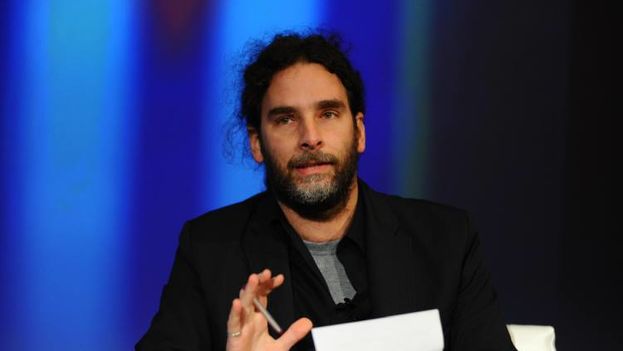
![]() 14ymedio, Luz Escobar, Mexico, 24 September 2015 — The writer and photographer Orlando Luis Pardo Lazo has received refuge in the capital city of Reykjavik, Iceland, through the Network of International Cities of Refuge (ICORN), he himself confirmed to 14ymedio. The Cuban artist also received guarantees of housing and the freedom to create.
14ymedio, Luz Escobar, Mexico, 24 September 2015 — The writer and photographer Orlando Luis Pardo Lazo has received refuge in the capital city of Reykjavik, Iceland, through the Network of International Cities of Refuge (ICORN), he himself confirmed to 14ymedio. The Cuban artist also received guarantees of housing and the freedom to create.
He is the second writer received by the city of Reykjavik city under these conditions – the Palestinian Mazen Maarouf was awarded refuge in 2011 – and the second Cuban to be welcomed by ICORN. Before Pardo Lazo, the poet and narrator Carlos Alberto Aguilera, former editor of Diaspora(s) and editor of the website InCubadora, was granted refuge; today he lives in Prague.
This network of cities, created in the mid-nineties by Salman Rushdie – then under the protection of Scotland Yard from the fatwa pronounced against him by Ayatollah Khomeini – Wole Soyinka and Vaclav Havel, among others, seeks to help and protect writers who cannot live in their homelands.
Pardo Lazo was born in Cuba in 1971 and graduated as a biochemist from the University of Havana, although he also worked as a journalist and social activist. With extensive work as a photographer, he developed several digital spaces, among them the blogs Boring Home Utopics and Lunes de Post-Revolution (Post-Revolution Mondays). On the island he edited the independent digital magazines Cachorro(s), The Revolution Evening Post and Voces (Voices).
In February 2013, following changes in Cuba’s laws regarding travel and immigration, the writer left the country and would have had to return before 24 months in order to maintain his right to live in Cuba. As he explained to this newspaper, it was at that moment that he chose “no return” and, since then, he has lectured at several universities in the United States on social activism in Cuba and literary censorship.
Until a few months ago he was a member of the International Writers Project at Brown University, where he also served as adjunct professor of creative writing in the Department of Hispanic Studies.
How did the blogger take the news of his refuge in Reykjavik? He answers: “When I was in my country, I was a writer in exile; therefore, now from exile I am much less so.” He concludes: “I have come to the end of the world to reconnect with the intimate and intimidating memory of my sentimental Cuba.”
